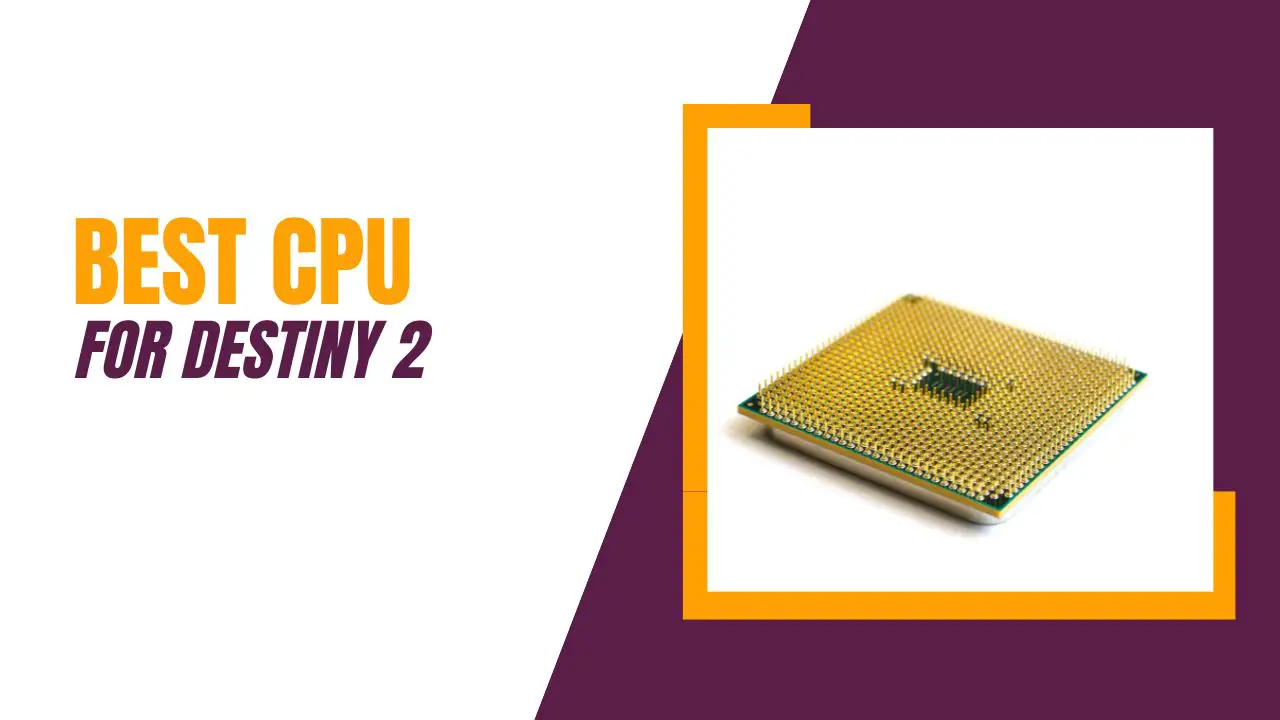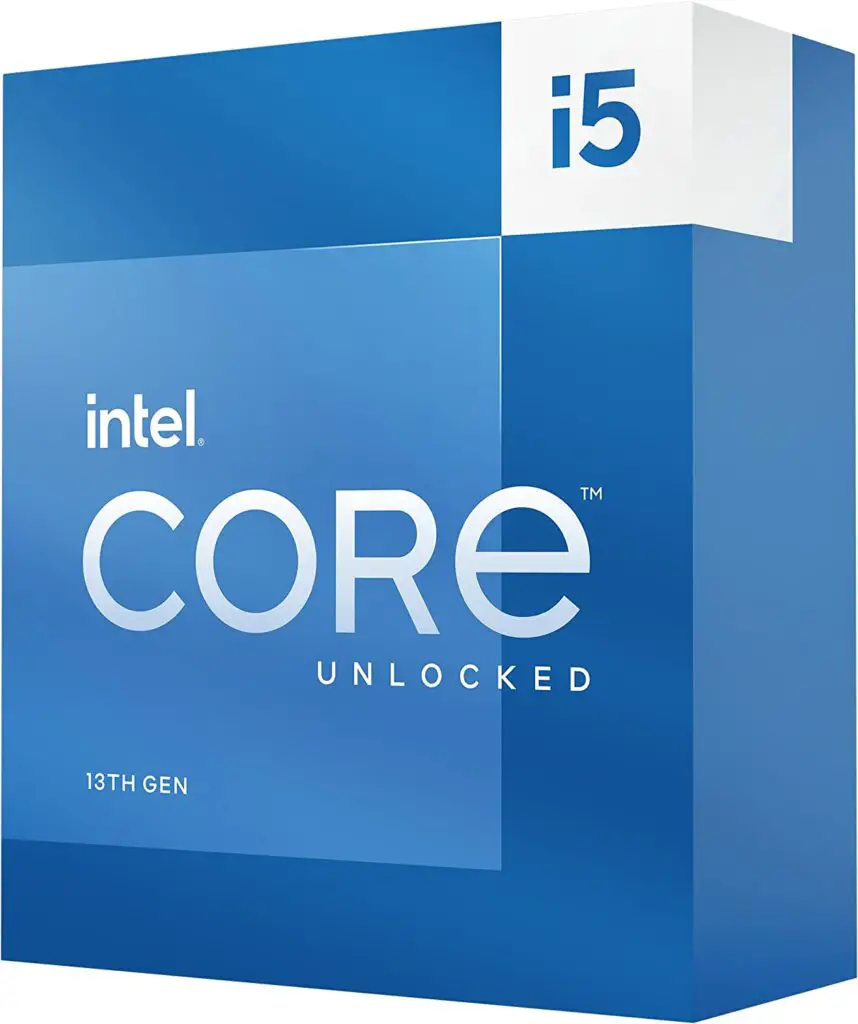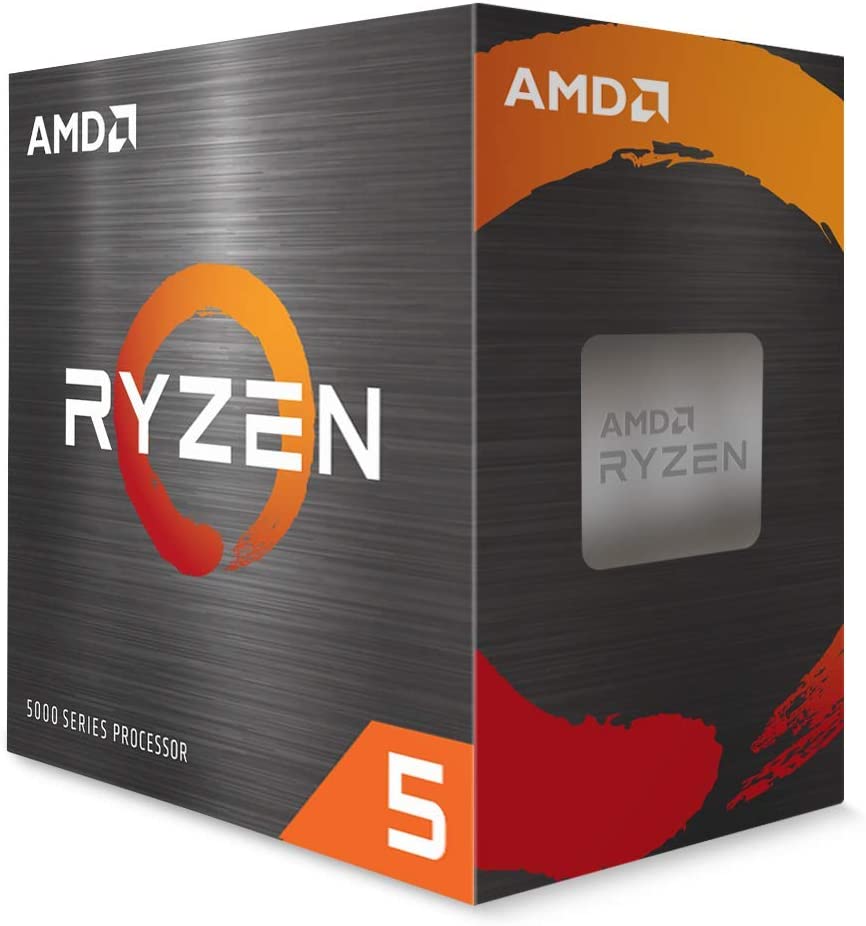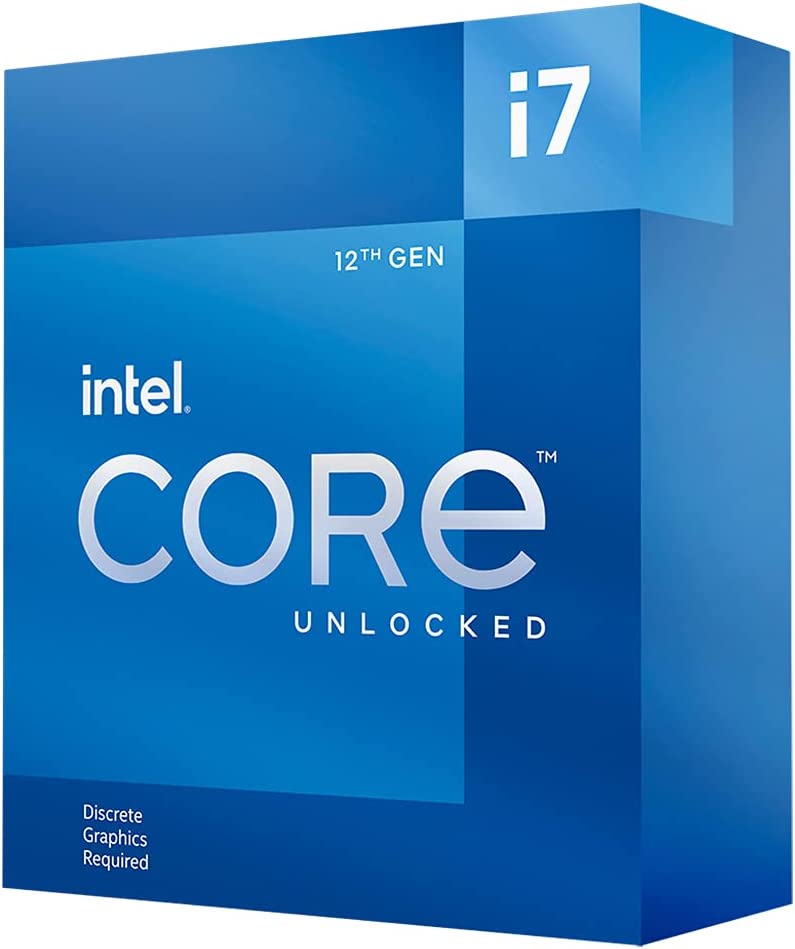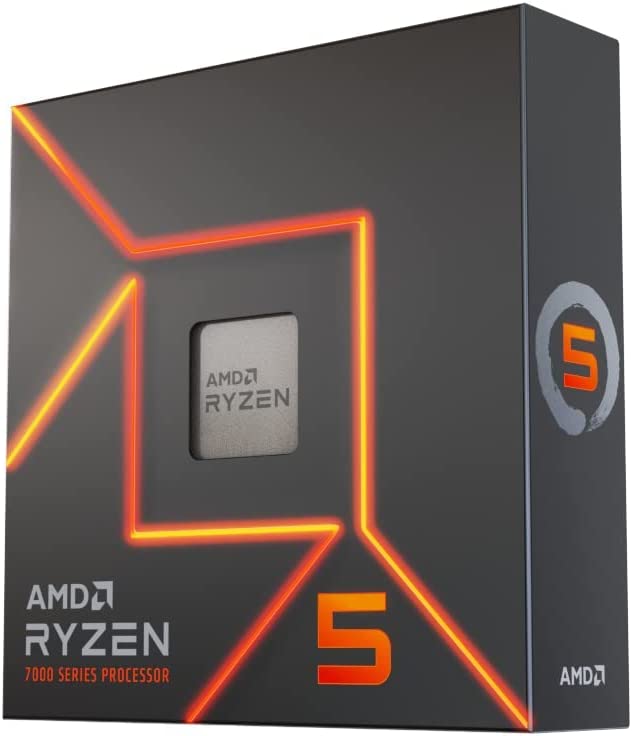Want to know destiny 2 cpu requirements? and What is the best cpu for destiny 2?
In the immersive world of Destiny 2, having the right CPU can mean the difference between seamless gameplay and frustrating lags. But what makes a CPU the best fit for this popular and sometimes CPU-intensive game?
From the processor’s cores and threads to its clock speed, compatibility, overclocking potential, future-proofing, and your budget, there are several key factors to consider. We’ll delve into these elements and help you navigate the array of options on the market.
Whether you’re battling in the Crucible, raiding with friends, or just exploring the universe, our comprehensive guide to the best CPUs for Destiny 2 is designed to help you elevate your gaming experience to new heights.
Join us as we decode the specifications and uncover the top-performing processors for Destiny 2, ensuring your gameplay remains as epic as the game itself.
Our recommended list of the Best CPU for Destiny 2
- Intel Core i5-13600K
- AMD Ryzen 5 5600X
- Intel Core i7-12700KF
- AMD Ryzen 9 5900X
- Intel Core i9-11900K
- AMD Ryzen 5 7600X
Destiny 2 System Requirements
here are the minimum and recommended system requirements for Destiny 2:
Minimum Requirements
- Operating System: Windows® 7 / Windows® 8.1 / Windows® 10 64-bit (latest Service Pack)
- Processor: Intel Core i3-3250 3.5 GHz or Intel Pentium G4560 3.5 GHz / AMD FX-4350 4.2 GHz
- Memory: 6 GB RAM
- Graphics: Nvidia GeForce GTX 660 2GB or GTX 1050 2GB / AMD Radeon HD 7850 2GB
- DirectX: Version 11
- Network: Broadband Internet connection
- Storage: 68 GB available space
Recommended Requirements
- Operating System: Windows® 10 64-bit
- Processor: Intel Core i5-2400 3.4 GHz or i5 7400 3.5 GHz / AMD Ryzen R5 1600X 3.6 GHz
- Memory: 8 GB RAM
- Graphics: Nvidia GeForce GTX 970 4GB or GTX 1060 6GB / AMD Radeon R9 390 8GB
- DirectX: Version 11
- Network: Broadband Internet connection
- Storage: 68 GB available space
It is important to note that these are just the minimum and recommended system requirements. You may need a more powerful system to run Destiny 2 at higher settings or resolutions. You can also check out the Bungie website for more information on Destiny 2 system requirements.
1. Intel Core i5-13600K
The Core i5-13600K is the overall best cpu for Destiny 2. Its high clock speed ensures consistent and smooth frame rates, even at higher settings. The vast number of cores also provide ample headroom for background tasks, meaning your gaming won’t be interrupted by other processes.
This chip uses the Alder Lake-S architecture, and it features a total of 14 cores – a configuration of 6 performance cores and 8 efficiency cores, showcasing Intel’s unique mix of high-performance and high-efficiency cores to provide a balance between power and performance.
The processor boasts a base frequency of 3.6 GHz, capable of reaching up to 5.1 GHz under Turbo Boost conditions, offering ample power for most gaming and multitasking needs.
It comes equipped with 24M of Cache, which is quite generous and allows for smooth, lag-free gaming and multitasking operations.
Intel UHD Graphics 770 is integrated into the processor, supporting 4K visuals, HDR, and wide color gamut.
The CPU is built on the 10nm process, which is more efficient and performance-oriented than the previous generations.
Being an unlocked ‘K’ series CPU, users can indulge in overclocking to squeeze out even more performance.
The hybrid architecture offers a good deal of multitasking performance. This is perfect for those who want to stream their gaming sessions, run multiple applications in the background, or use their PC as a workstation.
Compared to AMD’s offerings around the same price point – Ryzen 5 5600X, for instance, the Core i5-13600K tends to pull ahead in gaming-centric workloads due to its higher boost clock speed and innovative hybrid architecture.
Against Intel’s own 11th Gen Core i5-11600K, the 13600K offers tangible improvements in both single-core and multi-core performance due to the newer architecture and additional cores. It also offers better energy efficiency due to its 10nm process.
Pros
- Strong gaming performance, particularly with single-threaded games like Destiny 2.
- Overclocking capabilities can potentially offer even better performance.
- Hybrid architecture provides an excellent balance between power and performance.
- Power efficiency improvements over the previous generation.
Cons
- May require a new motherboard with LGA 1700 socket, which can be an additional cost for those looking to upgrade.
- Depending on the software, not all programs may be able to fully utilize the new hybrid architecture.
- As an enthusiast-level ‘K’ series processor, it doesn’t come with a cooler included.
The Intel Core i5-13600K CPU is a strong mid-range offering, especially for gamers. It provides the perfect balance between performance and power efficiency, making it a great choice for both gaming and workstation uses. If you’re a Destiny 2 player looking for an upgrade that delivers excellent performance without breaking the bank, the i5-13600K deserves serious consideration.
2. AMD Ryzen 5 5600X
The Ryzen 5 5600X represents AMD’s continued commitment to deliver excellent performance and value. This CPU is based on AMD’s Zen 3 architecture, building on the strengths of the Zen 2-based Ryzen 5 3600X while providing significant performance improvements.
The 5600X, part of AMD’s Ryzen 5000 series, features the company’s advanced Zen 3 architecture. It provides notable uplifts in performance-per-watt over previous generations.
This CPU boasts a 6-core, 12-thread configuration. For gamers and those who do light-to-moderate content creation or multitasking, this should be more than sufficient.
The 5600X has a base clock speed of 3.7 GHz, but can boost up to an impressive 4.6 GHz as needed. This makes it well-suited for gaming applications like Destiny 2.
With a total of 35 MB cache (32 MB L3 + 3 MB L2), this CPU should offer smooth performance in games and other demanding applications.
The Ryzen 5 5600X comes with AMD’s Wraith Stealth Cooler, a reliable cooling solution that should suffice for most users.
Unlocked for overclocking, enthusiasts can squeeze extra performance out of the CPU.
The CPU supports the AM4 platform and can take advantage of PCIe 4.0 bandwidth on X570 and B550 motherboards.
Official memory support is provided up to DDR4-3200, but the platform can comfortably support higher speeds, providing increased performance in some applications.
The 5600X, with its impressive single-core performance and high clock speeds, provides excellent performance in Destiny 2 and other similar gaming applications.
The 6 cores and 12 threads make this processor capable of handling multiple tasks at once without significant slowdowns.
The Ryzen 5 5600X offers significant improvements in both gaming and productivity tasks compared to its predecessor, the Ryzen 5 3600X. This is mainly due to the improvements brought by the Zen 3 architecture.
Against its Intel counterpart, the Core i5-13600K, the competition is fierce. While the i5-13600K may edge out in some gaming benchmarks due to higher turbo frequency and the hybrid architecture, the 5600X often excels in multi-threaded tasks due to its superior thread count. Moreover, the 5600X includes a cooler, which adds value.
Pros
- Strong performance in gaming and multitasking.
- Improved architecture leading to better power efficiency.
- Comes with a capable cooler, providing good value.
- Overclocking capabilities allow enthusiasts to eke out more performance.
Cons
- Higher list price than some competitors.
- While the included cooler is sufficient for stock speeds, it may not be adequate for significant overclocking.
- Doesn’t support the latest DDR5 memory.
The AMD Ryzen 5 5600X is a highly capable mid-range CPU that delivers strong performance in both gaming and productivity tasks. For Destiny 2 players who also engage in multitasking or light content creation, the Ryzen 5 5600X presents a compelling proposition, especially when considering its in-box cooler and the overclocking headroom.
3. Intel Core i7-12700KF
The Core i7-12700KF represents another step in Intel’s ambitious new direction, featuring their novel hybrid architecture and aiming for the high-end desktop market. This processor is a part of Intel’s 12th Gen Alder Lake series and is built on Intel’s 10nm Enhanced SuperFin process.
The i7-12700KF utilizes the Alder Lake-S architecture, and it has 12 cores – an 8+4 configuration (8 Performance and 4 Efficiency cores). The inclusion of both types of cores helps provide a balance of power and efficiency.
The CPU comes with a base clock speed of 3.6 GHz and can reach up to 5.0 GHz under Turbo Boost conditions. This impressive clock speed would cater to any demanding application, including high-end games like Destiny 2.
With 36MB of total cache (11MB L2 and 25MB L3), this processor can handle computation-intensive applications smoothly, reducing lag and latency.
This CPU is compatible with the LGA 1700 socket and 600 series chipsets. This new socket type means you’ll likely need a new motherboard if upgrading from a previous generation.
With its high clock speed and multi-core configuration, the i7-12700KF should offer excellent gaming performance, capable of driving Destiny 2 and other demanding games at high settings without breaking a sweat.
With 20 threads (16 P-threads + 4 E-threads), this CPU will handle multitasking applications with ease. It’s ideal for streamers or content creators who often run multiple heavy-duty applications simultaneously.
The i7-12700KF offers stiff competition to AMD’s Ryzen 7 5800X. Although AMD’s offering has strong single-thread performance, the higher clock speed and hybrid architecture of the i7-12700KF should provide a slight edge in gaming, particularly in CPU-bound scenarios.
Compared to its predecessor, the i7-11700KF, the 12700KF offers tangible improvements in both single-core and multi-core performance due to the newer architecture and the additional efficient cores. It also provides better energy efficiency because of its 10nm process.
Pros
- Excellent gaming and multitasking performance.
- Overclocking capabilities for performance enthusiasts.
- Hybrid architecture optimizes power efficiency and performance.
- High cache memory for demanding applications.
Cons
- The requirement for a new motherboard (LGA 1700 socket and 600 series chipset) can increase the total upgrade cost.
- High TDP means you will need a robust cooling solution.
- The absence of an integrated GPU may be a disadvantage for some users.
- Comes without a stock cooler.
The Intel Core i7-12700KF is a powerhouse, offering excellent performance for both gaming and productivity tasks. Its hybrid architecture and overclocking capabilities make it a standout choice for high-end users. If you’re a Destiny 2 player looking for serious horsepower, this CPU is well worth considering, provided you’re ready to invest in a compatible motherboard and a competent cooling solution.
4. AMD Ryzen 9 5900X
If you’re an avid gamer searching for the perfect CPU for Destiny 2, your quest ends here. Our in-depth review will unveil the stunning capabilities of the AMD Ryzen 9 5900X, a 12-core, 24-thread unlocked desktop processor designed to propel your gaming experience to unprecedented heights.
The AMD Ryzen 9 5900X CPU is undoubtedly a force to be reckoned with. Its impressive 12 cores and 24 processing threads deliver unmatched performance, making it the world’s best gaming desktop processor for Destiny 2 and beyond. This power-packed processor effortlessly guarantees an elite 100-plus FPS performance in the world’s most popular games, Destiny 2 included.
The AMD Ryzen 9 5900X CPU doesn’t just settle for the norm. It defies it with a formidable 4.8 GHz Max Boost and overclocking capabilities. When combined with its massive 70 MB of cache and DDR-3200 support, this CPU ensures that your gaming experiences are smooth, immersive, and refreshingly lag-free.
The Ryzen 9 5900X is ready for the future, supporting the advanced Socket AM4 platform and capable of embracing PCIe 4.0 on X570 and B550 motherboards. With this top-tier CPU, you’re not just buying a component; you’re investing in a pathway to the future of gaming.
When pitted against the competition, the Ryzen 9 5900X continues to shine. This gaming behemoth surpasses comparable CPUs like Intel’s Core i9-10900K, boasting superior multi-threaded performance, and power efficiency, courtesy of AMD’s advanced 7nm Zen 3 architecture. As for gaming, the 5900X often leaves its rivals in the dust in CPU-intensive games like Destiny 2.
Pros:
- Unsurpassed gaming performance in Destiny 2 and other popular games
- Exceptional multi-threaded performance for advanced multitasking
- Overclocking capabilities for performance enthusiasts
- Future-ready with support for advanced platforms and PCIe 4.0
Cons:
- No cooler included, necessitating an additional investment
- May require BIOS update for compatibility with older motherboards
- Pricier than some competitors
When it comes to providing an unrivalled gaming experience, especially for games like Destiny 2, the AMD Ryzen 9 5900X CPU unquestionably steals the spotlight. While it does require an additional cooler and comes at a higher price point, the unparalleled performance it offers is an undeniable game-changer. For gamers seeking to redefine their Destiny 2 experiences, there’s no looking beyond the AMD Ryzen 9 5900X CPU.
5. Intel Core i9-11900K
Are you seeking the ultimate CPU for 4K gaming in Destiny 2? The answer lies with the Intel Core i9-11900K. Our comprehensive review delves into the remarkable features of this desktop processor, its pros and cons, and how it stands out in the tech market.
The Intel Core i9-11900K CPU, equipped with 8 cores and 16 threads, paves the way for a truly immersive 4K gaming experience in Destiny 2. Its exceptional performance and speedy processing power are unrivaled, making it an excellent choice for demanding 4K games.
With a base clock speed of 3.5 GHz and an impressive boost of up to 5.3 GHz thanks to Intel Thermal Velocity Boost Technology, the i9-11900K guarantees smooth and uninterrupted gameplay. Its unlocked and overclockable features allow gamers to push its performance boundaries, providing a thrilling gaming experience like no other.
Compatible with 400 and 500 series motherboards, the i9-11900K is as flexible as it is powerful. Plus, its 16M Intel Smart Cache further bolsters its performance, ensuring your gaming sessions remain free from annoying lags.
When measured against its competitors, the Intel Core i9-11900K holds its own with aplomb. While the AMD Ryzen 9 5900X does offer more cores, the i9-11900K’s superior single-threaded performance often translates to better gaming, especially in Destiny 2’s 4K scenarios. The 5.3 GHz clock speed outpaces many other CPUs, ensuring gamers enjoy a smooth and seamless experience.
Pros:
- Unbeatable performance in 4K gaming, especially in Destiny 2
- High clock speeds for seamless gameplay
- Overclockable for enhanced performance
- Wide motherboard compatibility
Cons:
- Runs hotter than some competitors, requiring a good cooling solution
- Not as power-efficient as some AMD alternatives
- Higher price point
For avid gamers seeking a CPU capable of pushing 4K gaming in Destiny 2 to its limits, the Intel Core i9-11900K is a formidable contender. While it does require efficient cooling and comes with a slightly steeper price tag, its stellar performance and high clock speeds make it worth every penny. If you want to experience 4K gaming like never before, look no further than the Intel Core i9-11900K CPU.
6. AMD Ryzen 5 7600X
For those passionate about streaming Destiny 2, we present to you the powerhouse that is the AMD Ryzen 5 7600X. This detailed, comprehensive review will delve into the features, pros, cons, and compatibility of this cutting-edge CPU. Let’s begin.
Armed with 6 cores and 12 processing threads, based on AMD’s revolutionary “Zen 4” architecture, the Ryzen 5 7600X is a beast of a CPU. It promises to deliver pure gaming performance with a smooth 100+ FPS in Destiny 2 and other popular games, making your streaming sessions an absolute treat.
With a stellar 5.3 GHz Max Boost, the Ryzen 5 7600X is a speed demon. Its unlocked nature allows for overclocking, providing a serious performance punch for your gaming and streaming needs. Additionally, its substantial 38 MB cache and DDR5-5200 support ensure a seamless streaming experience, devoid of annoying lags or stutters.
The Ryzen 5 7600X supports the cutting-edge Socket AM5 platform and is capable of supporting PCIe 5.0 on select 600 Series motherboards. This means it’s ready for the future, catering to the ever-evolving needs of the gaming and streaming industry.
When stacked against its competitors, the Ryzen 5 7600X stands strong. While Intel’s Core i7-11700K does offer comparable performance, the 7600X’s superior power efficiency and “Zen 4” architecture edge it ahead, making it a superb choice for streaming Destiny 2.
The Ryzen 5 7600X pairs well with a range of CPUs and GPUs. For CPUs, consider the AMD Ryzen 7 7800X or the AMD Ryzen 9 7900X for higher-end options. As for GPUs, NVIDIA’s GeForce RTX 3070 or the Radeon RX 6600 XT will complement this processor’s power and ensure your streaming and gaming experiences are top-notch.
Pros:
- Excellent performance for both gaming and streaming
- High clock speeds for uninterrupted gameplay and streaming
- Overclockable for performance enthusiasts
- Supports future technologies with Socket AM5 platform and PCIe 5.0
Cons:
- No cooler included, requiring an additional purchase
- Might require a BIOS update for compatibility with older motherboards
- Higher power consumption under load compared to previous Ryzen CPUs
If you’re a streamer seeking the perfect CPU for Destiny 2, the AMD Ryzen 5 7600X could very well be your dream come true. Despite requiring an additional cooler and potentially a BIOS update, the unparalleled performance it provides for both gaming and streaming makes it a standout choice. Experience the future of gaming and streaming with the AMD Ryzen 5 7600X CPU. Your viewers will thank you!
How to Choose the Top Rated CPU For Destiny 2
Choosing the best CPU for Destiny 2 requires considering several factors to ensure an optimal gaming experience. Here are some key considerations:
1. Processor Cores and Threads: Destiny 2 is optimized to take advantage of multiple cores and threads. A CPU with at least four cores is recommended, but you’ll likely see improved performance with six or more cores, especially if you’re interested in streaming or multitasking while gaming.
2. Clock Speed: The clock speed of a CPU, measured in GHz, indicates how many calculations it can perform in a second. Higher clock speeds generally mean better performance, but remember that the impact of clock speed will also depend on other factors like cores, threads, and architecture.
3. Compatibility: Ensure your chosen CPU is compatible with your motherboard, in terms of both the socket and the chipset. If you’re planning to upgrade just your CPU, you’ll need to make sure your current motherboard supports it. This is also a good time to think about whether your motherboard supports features you might want, like overclocking or certain types of memory.
4. Overclocking Potential: Some CPUs are “unlocked” for overclocking, which allows you to push the CPU to run at higher speeds than its base rate. If you’re comfortable with the risks and demands of overclocking (including potentially needing a more robust cooling system), an overclockable CPU could be a good choice.
5. Future Proofing: While it’s not necessary to get the absolute latest and greatest CPU on the market, investing in a more powerful processor can help your system remain competent for gaming for a longer period. This is particularly true if you’re interested in playing more demanding games in the future.
6. Budget: Last but not least, consider your budget. There’s often a point of diminishing returns with gaming CPUs, where more expensive processors offer only incremental performance improvements. Find a balance between performance and cost that works for you.
By taking these factors into account, you can make an informed decision and choose the best CPU for your Destiny 2 gaming experience.
Conclusion
Choosing the ideal CPU for Destiny 2 is an investment in your gaming future. With the right processor, you’ll enjoy smooth gameplay, impressive graphics, and a seamless Destiny 2 experience.
From considering the number of cores and threads to the clock speed, the overclocking potential, and system compatibility, you’re now armed with the knowledge to make an informed decision.
Remember to balance performance and cost, to not only meet the game’s current demands but also to future-proof your system for upcoming releases. Each player’s needs and budget are unique, so there’s no one-size-fits-all answer.
Whether you’re a casual player or a dedicated streamer, prioritizing these crucial factors will guide you in finding the best CPU for Destiny 2, optimizing your system for epic battles in the cosmos. Keep exploring, keep winning, and above all, enjoy the immersive universe that Destiny 2 offers.
is destiny 2 cpu intensive
Yes, Destiny 2 is known to be somewhat CPU-intensive. While it certainly requires a decent GPU to run smoothly at high settings, it also demands a good amount of processing power. The game is designed to make use of multiple cores and threads, so having a CPU that can handle multiple simultaneous tasks is beneficial.
Destiny 2 can generate large crowds of enemies and complex environments, which puts a substantial load on the CPU. Furthermore, activities such as raid encounters or public events that feature a lot of players and a high amount of on-screen action can cause a significant spike in CPU usage.
However, it’s also worth mentioning that Destiny 2 is relatively well-optimized. As long as your system meets the minimum or recommended specifications, you should be able to enjoy the game. Of course, the better your CPU, the smoother the gameplay experience, particularly at higher settings and resolutions.
Is Destiny 2 CPU or GPU heavy?
Destiny 2, like many modern games, relies on both the CPU and GPU to run optimally. However, the degree to which it leans on each can vary depending on a few factors.
CPU-Intensive Aspects: Destiny 2 is known to be fairly CPU-intensive, particularly in scenarios with many characters on-screen, such as large-scale events or battles with many enemies. The CPU is responsible for AI processing, game physics, and handling the multitude of calculations required to keep the game running smoothly during such events.
GPU-Intensive Aspects: The GPU handles rendering the game’s graphics – the more visually intensive the settings (like higher resolutions, increased draw distances, or enhanced lighting and textures), the more the game will tax your GPU. If you’re aiming for higher frame rates or playing at higher resolutions like 1440p or 4K, a powerful GPU becomes even more important.
It’s also worth mentioning that the balance between CPU and GPU load can be impacted by your settings within the game. Lowering graphical settings can reduce the load on your GPU, while reducing settings related to draw distance or crowd size, for example, may decrease the load on your CPU.
In short, Destiny 2 can be both CPU and GPU heavy, depending on the situation and your settings. For the smoothest gaming experience, a balanced system with both a strong CPU and GPU is ideal.
How much CPU should Destiny 2 use
Destiny 2 is a graphically intensive game that can utilize a lot of CPU power, but exactly how much it uses depends on several factors:
- CPU model and number of cores/threads – Destiny 2 can take advantage of multiple CPU cores and threads. Higher core/thread count CPUs like 6-core or 8-core processors will allow Destiny 2 to spread the workload across more cores.
- CPU clock speed – Faster CPU clock speeds will provide better Destiny 2 performance. Overclocking can help increase CPU speeds if your CPU supports it.
- Graphics card – Using a more powerful graphics card takes some of the rendering workload off the CPU. With a weaker card, the CPU has to work harder.
- Game settings – Playing at higher resolutions, frame rates, and graphics settings puts more demand on the CPU. Lower settings will reduce CPU utilization.
- Activity – The specific activity within Destiny 2 matters too. Complex scenes with many enemies and effects are more CPU intensive than simple areas.
As a rough guideline, Destiny 2 can use 50-100% of a modern 4-core or 6-core CPU like an Intel Core i5 or Ryzen 5. An 8-core CPU may see lower average utilization around 30-60%. However, the game can fully utilize any CPU cores and threads available to try and maximize performance. Monitoring your CPU usage while playing at your preferred settings is the best way to see how much your specific system uses.
Destiny 2 CPU bottlenecks
Here are some key points about Destiny 2 and CPU bottlenecks:
- Destiny 2 relies heavily on CPU power, especially in areas with lots of enemies and effects. It can be quite CPU intensive.
- Quad-core CPUs like the Intel Core i5 or AMD Ryzen 5 can be sufficient, but Destiny 2 will see benefits from 6 or 8 core processors.
- Higher per-core performance is also important. Destiny 2 favors high single threaded speed. Intel CPUs often have an edge here over AMD.
- Overclocking can help extract more CPU performance if your chip supports it. This applies to both Intel and AMD CPUs.
- Resolution and graphics settings impact CPU load. At 1080p, the CPU has to work harder. At 1440p and 4k, more work shifts to the GPU.
- Faster memory like DDR4-3000 or DDR4-3200 can provide a small boost to Ryzen CPU performance. Intel is less dependent on RAM speed.
- If your GPU usage is low (less than 95%) and FPS is capped below your monitor’s refresh rate, your CPU is likely bottlenecking.
- Upgrading to a stronger CPU like a 6-core or 8-core processor can help eliminate a CPU bottleneck. An Intel Core i7 or AMD Ryzen 7 is recommended.
Destiny 2’s CPU requirements are quite high. A quad-core CPU should run it respectably, but consider a 6 or 8-core chip to maximize performance. Bottlenecks mainly happen when paired with a very powerful GPU at 1080p resolution.
Destiny 2 CPU Benchmarks
Here are some CPU benchmark results in Destiny 2 to give an idea of performance with different processors:
- Intel Core i9-9900K (8C/16T) – Average around 160fps @ 1080p highest settings
- Intel Core i7-9700K (8C/8T) – Average around 150fps @ 1080p highest settings
- AMD Ryzen 7 3700X (8C/16T) – Average around 140fps @ 1080p highest settings
- Intel Core i5-9600K (6C/6T) – Average around 130fps @ 1080p highest settings
- AMD Ryzen 5 3600X (6C/12T) – Average around 120fps @ 1080p highest settings
- Intel Core i5-8400 (6C/6T) – Average around 110fps @ 1080p highest settings
- AMD Ryzen 5 2600X (6C/12T) – Average around 100fps @ 1080p highest settings
- Intel Core i3-8350K (4C/4T) – Average around 90fps @ 1080p medium settings
- AMD Ryzen 3 3300X (4C/8T) – Average around 80fps @ 1080p medium settings
Some key things to note:
- More cores/threads provides better performance, especially with 6+ cores
- Intel has a slight edge in per-core speed which benefits Destiny 2
- Ryzen 3000 series closed the gap significantly compared to earlier Ryzen CPUs
- Overclocking can provide a nice boost to frame rates
- At 1440p and 4k, the GPU becomes more of a limiting factor than the CPU
So in most cases a 6-core or 8-core CPU is recommended for the best Destiny 2 experience, especially when playing at 1080p resolution. Both Intel and AMD latest gen CPUs deliver excellent performance.
